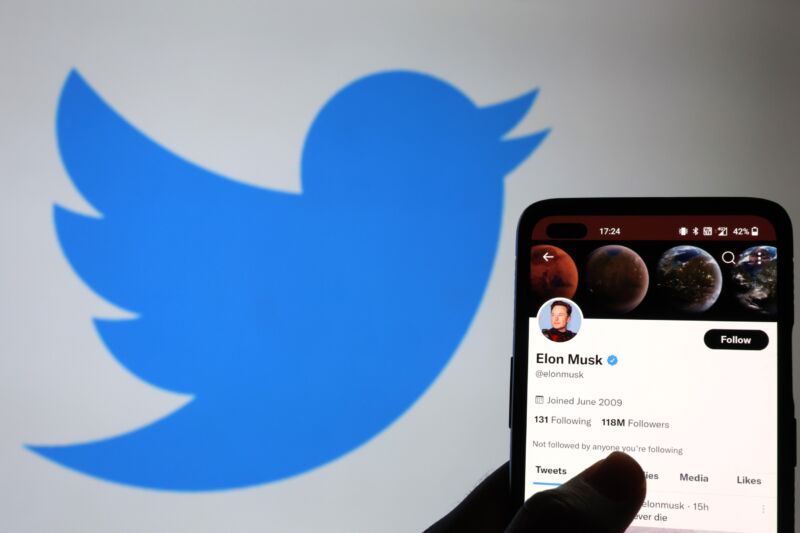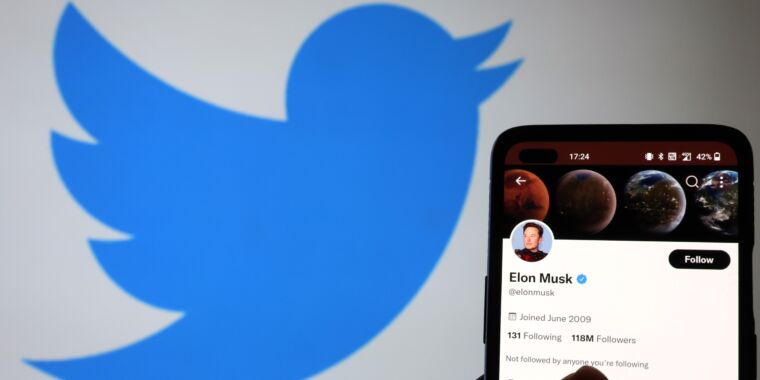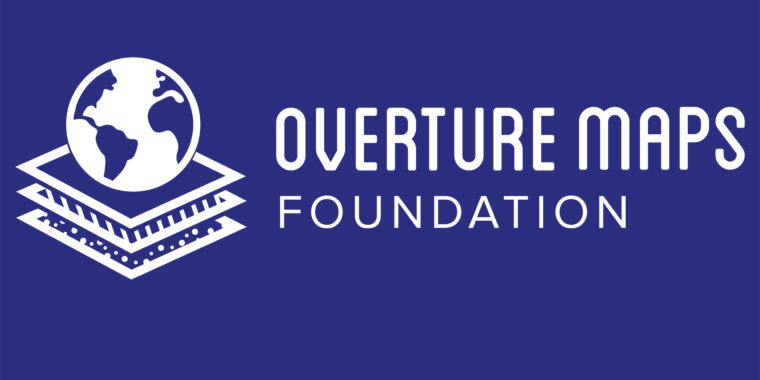
Getty Images | Nathan Stirk
Twitter owner and CEO Elon Musk is now suspending some journalists who write about him, including reporters from The New York Times, Washington Post, and CNN. The journalist suspensions seem to be part of Musk’s quest to erase references or links to the now-suspended ElonJet account that used publicly available data from ADS-B Exchange to track Musk’s private jet.
Musk claimed the suspended journalists violated the new policy that bans sharing of live locations in most scenarios. Musk wrote that the “same doxxing rules apply to ‘journalists’ as to everyone else” and that the suspended journalists “posted my exact real-time location, basically assassination coordinates, in (obvious) direct violation of Twitter terms of service.”
It appears that simply posting a link to the ElonJet account on other social networks is enough for a suspension.
“I have no idea what rules I purportedly broke. I haven’t heard anything from Twitter at all,” journalist Aaron Rupar wrote on his Substack. He later added an update, writing that “it occurred to me just after I published this that I did post a tweet yesterday noting that the ElonJet account that was suspended from Twitter was still active on Facebook, with a link to the Facebook page. As hard as it may be to interpret linking to a Facebook page that uses publicly available information to track a private jet as violating a ‘doxxing’ policy, it appears that’s what Twitter did to justify my banning.”
Mashable journalist Matt Binder, who was also suspended, said he did not post any links to ElonJet or any other location-tracking accounts. Washington Post reporter Drew Harwell was suspended and he disputed Musk’s claim that he violated the doxxing policy, as Reuters wrote:
Harwell, however, was able to speak on a Twitter Spaces conversation with fellow journalists late on Thursday evening, a chat that Musk himself briefly dropped in on.
“You dox, you get suspended. End of story,” Musk said on the chat as Harwell rejected the assertion that he had exposed Musk’s real-time location, saying he had simply posted about @elonjet.
The suspensions may be temporary as Musk polled his followers on whether “accounts who doxxed my exact location in real-time” should be reinstated now, or in seven days.
Washington Post: “Our journalist should be reinstated”
In what was apparently Harwell’s last post before being suspended, he wrote that Twitter suspended the account of rival social network Mastodon “because it posted a link to its own website’s version of @ElonJet—public, legally acquired data that Twitter decided two days ago was against the rules. Loving the free speech.”
Washington Post Executive Editor Sally Buzbee said Harwell’s suspension “directly undermines Elon Musk’s claim that he intends to run Twitter as a platform dedicated to free speech. Harwell was banished from Twitter without warning, process or explanation, following the publication of his accurate reporting about Musk. Our journalist should be reinstated immediately.”
Suspended journalists also include Ryan Mac of The New York Times, Donie O’Sullivan of CNN, Micah Lee of The Intercept, commentator Keith Olbermann, Steve Herman of the government-funded Voice of America, and freelance journalist Tony Webster.
According to CNN, “A New York Times spokesperson called the mass bans ‘questionable and unfortunate,’ adding: ‘Neither The Times nor Ryan have received any explanation about why this occurred. We hope that all of the journalists’ accounts are reinstated and that Twitter provides a satisfying explanation for this action.'” Also, a “CNN spokesperson said the company has asked Twitter for an explanation, and it would ‘reevaluate our relationship based on that response.'”
“Webster said he had been tweeting about @ElonJet” but “said he received no explanation of the social media platform’s decision,” Politico wrote.








